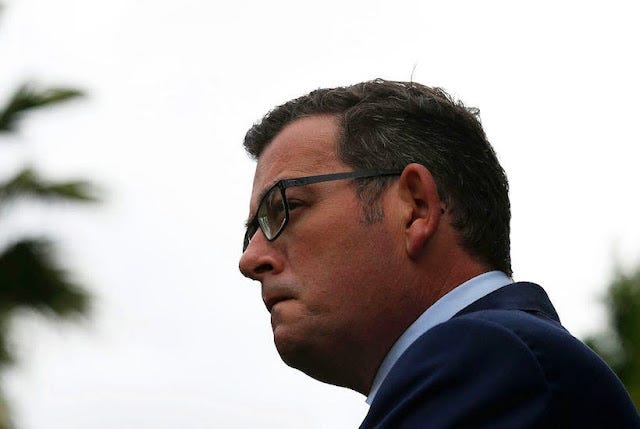
There was so much ink in the water it was creating chaos. It was in this chaos the attack would come. The leadership was once more in play, if it had ever not been in play, and there were multiple vectors arrowing toward the heart of the matter. The truly gormless Prime Minister of the day, lazy to his fingertips, had destroyed the country in a single year.
Two hundred years of struggle; and he was turning the place into a smoking, haunted ruin, and unleashing the worse that people were capable of.
And still he showed up at press conferences, as if they meant anything anymore. So discredited were these people that even a compliant, ignorant and poorly educated populace were waking up to the truth of their treatment.
There were so many plots afoot you could spend all day listing them. There was a play, and play within plays. There was the lessons of Constanipole, you rain fire from the sky, you pummel the walls, you light fire from under, from the heavens and the earth you fight. You form alliances. You undermine the people's confidence. You make strategic plays as you gather strength.
And even then, the octopus squirting ink, it was difficult if not impossible to tell where the truth lay. And so both the messaging and the circumstance became chaotic. That day's headlines were all about Australia's Attorney General Christian Porter fronting the media over historic rape allegations, 33 years old. I was just a boy. It did not happen; he declared. But that was not the point. The femocracy of Canberra, always opposed to the conservatives, was now in play. While every good feminist journalist worth their name was now on the hunt; and would ask no other question, no matter how worthy the announcement, as they desperately tried to appease their editors desperate for more.
Stories had to be made and then followed up. Pages had to be filled. Dead air had to be filled. Down every single rabbit hole the stories would run. And God forbid any politician who dismissed the allegations as unsubstantiated and frivolous. Done like a dinner.
In all this clouded circumstance, mud would stick. Signals would be sent.
The ineptitude of Morrison's kafuffling over the allegations against one of his minister's simply made things worse.
Because there was no appeasing an outraged mob of women, as Christine Blasey Ford had demonstrated over highly dubious and entirely uncorroborated claims during a US Supreme Court nomination. Either you sang from the song sheet of victimhood or you died the death of a thousand slurs.
Thirty three years old, the allegations, made not by the woman, who had since passed away, but by friends and family; a he said she said claim that could never be corroborated simply because of the passing of time.
It was just one piece of ink thrown into cloudy circumstance. There would be plenty more. Plenty more. Leave no stone unturned. Which he was sure they hadn't.
Time, time is urgent. That was the only message he received that fine autumn day.
You must stop. You must go on. "Stick with it," a jogger said on his mobile as he sweated by. Enrich the mind. Feed the mind. Protect yourself. Be careful. T-shirt slogans.
Chaos is strategy.
Mud sticks. As government operatives knew all too well.
Unleash the hounds. Let them take care of business.
HEADLINES

https://spectator.com.au/2021/03/government-and-little-people-the-democratic-divide-in-danandrewstan/
Government and little people: the democratic divide in Danandrewstan
The disconnect between the protected public sector and mainstream Victorians was perfectly encapsulated by the Secretary of the Department of Treasury and Finance, David Martine, last week. Martine, giving evidence to the Public Accounts and Estimates Committee said that the snap five-day lockdown of the entire state of Victoria would likely have a ‘minimal’ impact on Victoria’s public finances.
That forcing 6.7 million Victorians into a strict lockdown does not have a significant impact on public finances demonstrates the entire problem of lockdowns and the government’s response to coronavirus.
The past year has shown that when lockdown measures are implemented it is the private sector that pays the price. While hundreds of thousands of Australians were forced out of work, asked to take pay cuts, and had promotions and pay rises cancelled when lockdowns were first introduced in late March last year, their public sector counterparts had a completely different experience. In Victoria, Premier Daniel Andrews and his ministers all secured an 11.8% pay rise, while all Victorian public servants cashed in a 2% pay rise plus an additional ‘mobility payment’ worth between $757 and $2,800 each.
This disconnection is not just frustrating, it is dangerous. There is a serious moral hazard created when the public sector bureaucrats responsible for implementing lockdown measures are sheltered from the costs such lockdowns inflict. They have no ‘skin in the game’, and therefore no reason to keep the economy open and leave Victorians free to work and live.
This is precisely the problem. For the past year, politicians and public servants have decided what lockdown measures they will implement, how long they will remain for, and what activities are deemed ‘essential’. Coincidently, these same people never have to bear any of the costs of these decisions and, of course, all their work is essential.
During the second lockdown in 2020, gardeners were deemed not to be an essential service, and thousands of sole traders had their income stream immediately and indefinitely severed. The public health advice, apparently, was that a person mowing lawns by themselves was not safe or essential. But if that person was employed by a council or the state government, then they of course were essential. It quickly became evident that whether or not you were an ‘essential’ worker was not determined by the activity you were performing but by who pays your wages.
Between April and September of 2020, private sector workers in Victoria saw their wages drop by $3.4 billion. But in the public sector, wages increased by $713 million. And it’s not just wages. Between February and November, 27,000 new public servants were hired in Victoria, while 100,000 private sector workers remained out of work. This means that for every new public servant hired almost four private sector workers lost their job.
This is the stark difference between the class of protected elites in the public sector and mainstream Victorians employed in the private sector. When Premier Dan Andrews, the Chief Health Officer Brett Sutton, or any other person paid by taxpayers says, “we’re all in this together”, what they really mean is that they are all in it together.
So, when Martine outlined that the snap lockdown had a “minimal” impact, he captured the word that comes to the mind of many Victorian public servants. Their jobs were never threatened, and their wages actually increased over the course of 2020. For some, lockdowns really weren’t that bad.
The impact of lockdowns on small businesses was hardly minimal. Nor was the impact minimal for florists forced to close with less than 12 hours notice that they would not be able to trade on their busiest day of the year, nor for café owners that had to throw away thousands of dollars worth of produce, nor for the owners of a bed and breakfast in regional Victoria, hundreds of kilometres away from any current or historic cases of coronavirus, who had to cancel all their bookings.
As long as the politicians and bureaucrats are sheltered from the real impact of their disastrous lockdown measures, they will continue to implement them without sparing a thought for the harm they inflict on ordinary Victorians.
On October 10 last year, during his daily press conference, Daniel Andrews said, “The only numbers I’m focused on is [COVID-19] case numbers.”
Victorians will live in fear of another lockdown for as long as the obsession with case numbers and eliminating the virus entirely remains.
But if the pay of public servants and politicians was affected each time Victorians were forced to close their businesses and stay home from work, it would give them another number of focus on, and a strong incentive to keep the state open and allow Victorians to enjoy their lives.



